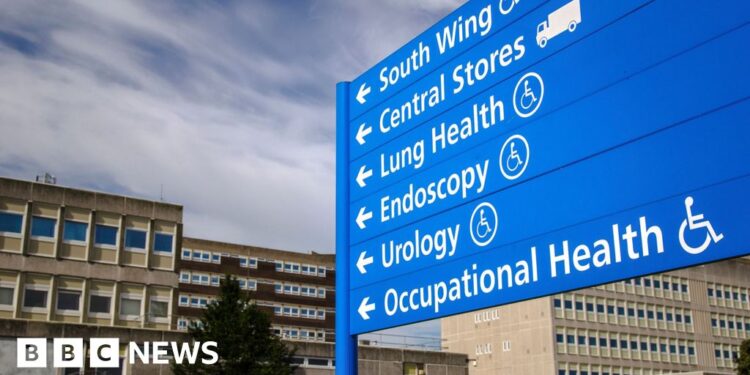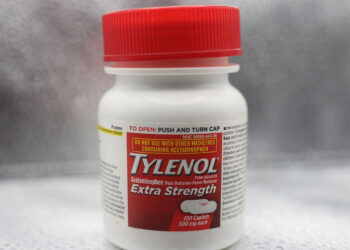New league tables rating the performance of NHS trusts in England have been published for the first time, with specialist hospitals taking the top slots.
Number one is Moorfields Eye Hospital NHS Foundation Trust, followed by the Royal National Orthopaedic Hospital NHS Trust and cancer centre the Christie NHS Foundation Trust.
At the bottom is Queen Elizabeth Hospital in King’s Lynn, which has had major problems with its buildings because of structural weaknesses and the need for props to hold up ceilings.
Health Secretary Wes Streeting said the tables would help inform the public and allow them to exercise choice – but trusts have questioned whether they were using the right metrics.
The rankings score NHS trusts on seven different areas including waiting times for operations, cancer treatment, time spent in A&E and ambulance response times.
Their finances are also assessed, and it is possible that a hospital rated highly for clinical care will be marked down if they are running up a larger than expected deficit.
They are then sorted into four categories, the first of which reflecting the best performers and the last listing the worst.
The public will be able to use the league tables check the performance of their local hospital, ambulance service or mental health trust.
For instance, Moorfields in London tops the list of trusts with a score of 1.39, while the Queen Elizabeth Hospital has a score of 3.35.
A spokesperson for the Queen Elizabeth Hospital said: “Our patients deserve the highest standards of care, and we are sorry that in some of our performance areas… we have fallen short. Immediate steps are being taken to address the issues.”
The Countess of Chester hospital, in north-west England, came second to last. The hospital had its emergency services department rated inadequate by the Care Quality Commission last month.
Streeting told BBC Breakfast that the league tables would “help to hold me to account and help me hold to account the performance of NHS leaders across the country”.
Trusts in England will be ranked every three months – with the top performers given more power over how they spend their money and those lower down encouraged to learn from the best trusts and receive support from national officials.
But NHS Providers, which represents trusts, said there were questions over whether the league tables were accurately identifying the best performing organisations.
Chief executive Daniel Elkeles said: “For league tables to really drive up standards, tackle variations in care, and boost transparency, they need to measure the right things, be based on accurate, clear and objective data and avoid measuring what isn’t in individual providers’ gift to improve.”
He added that anything less could have unintended consequences that might affect patients’ confidence in their local health services.
The Department of Health said that from next year the best performing trusts would have more freedom to develop services around local needs – while those underperforming would receive “enhanced support” but their bosses could also have pay reduced.
The highest rated leaders will be offered bigger pay packets in exchange for attempting to turn around struggling trusts.
Thea Stein, chief executive of the Nuffield Trust think tank, said it was understandable that the government was focussed on winning back public trust but added a note of caution.
“There’s a risk that trusts will focus only on the measures that immediately boost their ranking, even if it’s not necessarily best for patients,” she said. “As finances have a particular sway on the rankings, this is of limited use for patients trying to choose the best hospital for their care.”
Chris McCann from Healthwatch England said any league table must inform instead of confuse people.
“It will be essential that the new dashboard clearly communicates the information that is most important to patients and that it is as accessible as possible,” he said.
From next summer, the tables will be expanded to cover integrated care boards, which are responsible for planning health services at a local level.
Streeting singled out for praise Northumbria Healthcare NHS Foundation Trust, which was the highest ranking non-specialist NHS trust and ninth overall.
He said the trust had been able to integrate its A&E response with community services so people could receive care at home, keeping appointments free for planned operations and procedures.
Source link : https://www.bbc.com/news/articles/cq8eqxlypv7o?at_medium=RSS&at_campaign=rss
Author :
Publish date : 2025-09-09 07:32:00
Copyright for syndicated content belongs to the linked Source.














